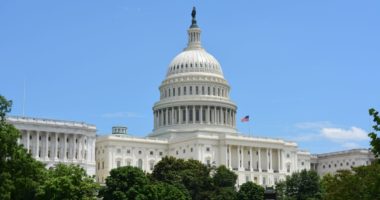New Report Finds Our Nation’s Most Selective Colleges and Universities Already Don’t Have Diverse Enough Student Bodies, Hurting the U.S. Labor Force
FOR IMMEDIATE RELEASE
CONTACT:
Ameshia Cross
across@edtrust.org
312-339-6930
Ed Trust urges university leaders to intentionally prioritize diversity and anti-racism from recruitment through completion
WASHINGTON – Since the U.S. Supreme Court upended affirmative action in college admissions, extreme right-wing legislators and bigoted groups have worked overtime to roll back diversity, equity, and inclusion policies and practices in education. While many college leaders remain committed to diversity, they’ve lost a key tool for creating more diverse student bodies. Many are now backing away from other diversity initiatives and scholarships for fear of further litigation. What does this moment mean for Black students? And what should colleges do now to increase Black student representation and improve campus racial climate? A new Ed Trust report aims to answer these questions and more.
In ’Segregation Forever?’: The Continued Underrepresentation of Black Undergraduates at the Nation’s 122 Most Selective Private Colleges and Universities, a follow-up to our 2020 report on the dearth of Black and Latino students at public flagships, we examined how access for Black students has changed at selective private institutions over the past two decades. Unfortunately, the findings weren’t encouraging. Although Black enrollment in higher education has grown in recent decades — and despite all the rhetoric about the importance of boosting campus diversity — Black students remain severely underrepresented at the nation’s 122 most selective private colleges and universities, which were examined not only for accessibility and access for diverse students but also for student success, Ed Trust researchers note. And they say the recent Supreme Court ruling against affirmative action in higher education admissions will likely worsen things.
“In the wake of the SCOTUS ban on affirmative action, it’s more essential than ever that campus leaders strategically and intentionally prioritize antiracism and diversity from the earliest stages of recruitment through completion,” said Gabriel Montague, a higher education research analyst at Ed Trust and the author of the report. “We must acknowledge the facts presented in our data, which show this underrepresentation of Black students at these elite private institutions has persisted for decades, long before the 2023 ban.”
Indeed, while nearly 74% of the institutions in our sample have increased their Black undergraduate student enrollment since 2000, our findings show that these increases were slight and that, overall, very little progress has been made. The overwhelming majority of the nation’s most selective private colleges and universities remain inaccessible for Black first-time, full-time undergraduate students.
According to Ed Trust metrics, all eight Ivy League institutions earned D or F grades for Black access from 2000-2020. Although these numbers aren’t surprising, they paint a disturbing picture, especially “given that more than 300 years ago, some of these selective private institutions owned more Black enslaved people than they enrolled students, and now they are enrolling more legacy students than Black students,” Montague said. “We cannot allow this to continue.”
‘Segregation Forever?’ provides various recommendations for college leaders and policymakers on ways to increase the number of Black students at these institutions, including developing recruitment strategies that expand access, assessing and improving campus racial climates, leveraging federal accountability, and increasing standards for accreditation organizations.
According to Ed Trust, Black students already face many barriers to accessing and completing a higher education. And that has implications for the nation’s labor force, which is becoming more diverse, and the country as a whole. Ed Trust’s report suggests that a failure to support Black student access and completion could hurt the labor supply in high-needs fields like education, law, and medicine, which are already experiencing acute shortages. America will no longer be a majority-White nation by 2045, which makes increasing Black representation in these fields even more important.
Representation matters. Without Black doctors, Black mortality will rise; without Black lawyers, discrimination and injustice in the legal system will persist, and Black students will suffer without Black teachers. Colleges and universities are tasked with educating and preparing future workers and leaders; it’s high time for them to admit and ensure the progress of Black leaders for the America we live in, not contribute to the expansion of our Jim Crow past.
###
To read more about this report, please visit, ’Segregation Forever?’: The Continued Underrepresentation of Black Undergraduates at the Nation’s 122 Most Selective Private Colleges and Universities.
About The Education Trust:
The Education Trust is committed to advancing policies and practices to dismantle the racial and economic barriers embedded in the American education system. Through our research and advocacy, Ed Trust improves equity in education from preschool through college, engages diverse communities dedicated to education equity and justice, and increases political and public will to build an education system where students will thrive.




